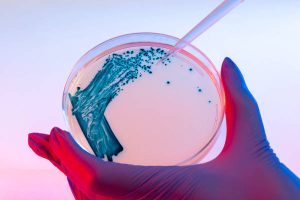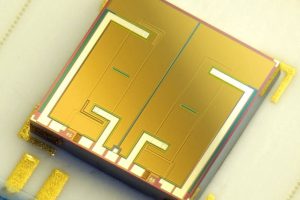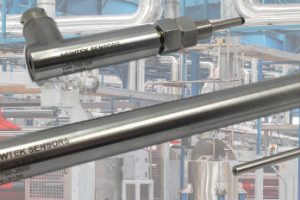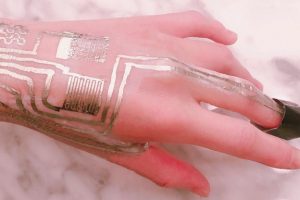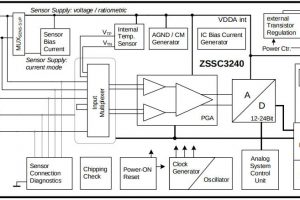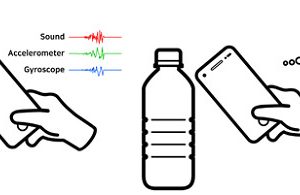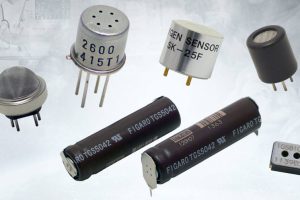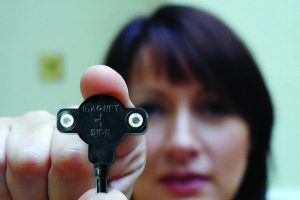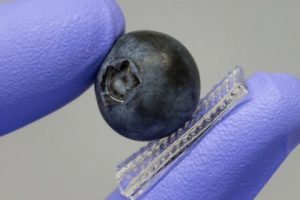The Defense Advanced Research Projects Agency (DARPA) has teamed up with Massachusetts-based Draper to streamline the design of microbe-based electronic sensors. “Microbes have the potential to be developed as biological sensors that can collect vital information about the environments they naturally inhabit,” said Draper biotechnologist Chris Vaiana. “Our goal is to support DARPA in mapping the modular design of microbe-based ...
Tag Archives: sensor technology
Single chip measures pH, nitrate, phosphate and potassium in water
A single IC can measure pH, nitrate, phosphate and potassium levels in water, according to the Fraunhofer Institute for Photonic Microsystems, which has developed a way to monolithically combine multiple ion-sensitive field-effect transistors (isfets) “Due to their resistance to breakage, isfets are already widely used in pH measurement technology, especially in food production,” according to the organisation. “Fraunhofer IPMS has ...
4-20mA LVDT position sensors are hermetic for industry
NewTek Sensor Solutions of New Jersey is offering hermetically-sealed LVDT position sensors with a 4 – 20mA current loop output. “Sustaining accuracy with no errors over long distance transmissions, 4 – 20mA current does not degrade over long connections and is less sensitive to background electrical noise,” according to the company. “Simple to connect and configure, the 4-20 mA output ...
Metal conductors sintered onto skin at room temperature
Metal conductors can be formed directly onto human skin, according to an international science team which found a way to sinter silver nano-particles into silver conductors at room temperature. The process was used to measure skin temperature and humidity, and to form electrodes for ECGs and conductors to LEDs for blood oxygen measurements (see photo). The process was also used ...
More on: 24bit analogue sensor front-end includes signal processing and loop interface
Renesas’ ZSSC3240, announced earlier today, is a sensor signal conditioning chip that provides amplification and 24bit digitisation for bridge and half-bridge resistive sensors, followed by 26bit sensor-specific correction in a maths core that handles auto-zero, span, and 1st and 2nd order temperature compensation from coefficients stored in non-volatile memory. Support circuits to feed the sensor is included, and measurement is ratiometric ...
Torq Sense transducers used in agricultural applications
Torq Sense transducers from Sensor Technology have been used by Gloucestershire-based animal shearing and clipping equipment supplier, Lister Shearing. The sensors, based on surface acoustic wave (saw) technology, are being used by the company as an aid to evaluating the performance of miniature electric motors. “An issue commonly encountered with powered hand tools, which form a significant part of the ...
Sensor fusion lets phone identify objects by simply knocking against them
Objects can be identified by knocking a smartphone against them, according to Korean research lab KAIST. No camera is involved. Instead the technique processes data from the phone’s microphone, accelerometer and gyroscope – recorded simultaneously as the phone is tapped on the object. The system was trained on 23 everyday objects – including books, laptop computers, water bottles, and bicycles. ...
Anglia expands range with Figaro IoT-ready gas sensors
Anglia is expanding its range of IoT-ready sensors with the Figaro range of gas sensors, used in air quality monitors, gas leak detectors, and other applications. Figaro gas sensors are used in applications such as fire detectors, air quality sensors, refrigerant leak detectors, gas leak detectors and monitors for carbon monoxide, nitrogen dioxide, oxygen, carbon dioxide, chlorine, methane, hydrogen and ...
Charcroft franchise agreement extended by Sensata Technologies
Charcroft Electronics announces the extension of its franchised distribution agreement with Sensata Technologies
e-skin senses sideways force as well as direct force
An electronic copy of human skin can detect force, and the direction of that force. When griping with thumb and fingers, a robot hand using this could sense both the weight of an object and the force applied to it, allowing more sophisticated manipulation. “This technology puts us on a path to one day giving robots the sort of sensing capabilities ...
 Electronics Weekly Electronics Design & Components Tech News
Electronics Weekly Electronics Design & Components Tech News
